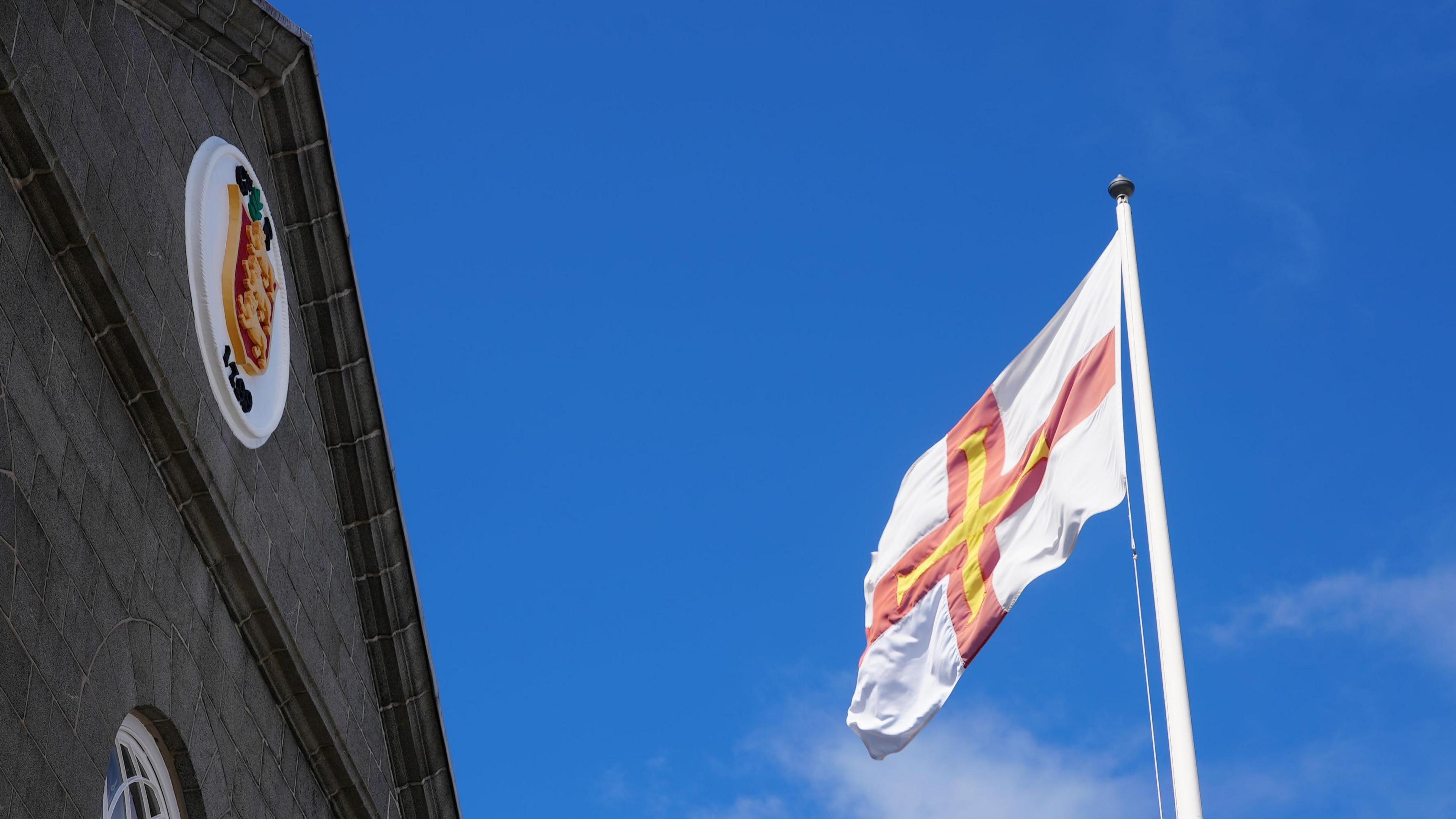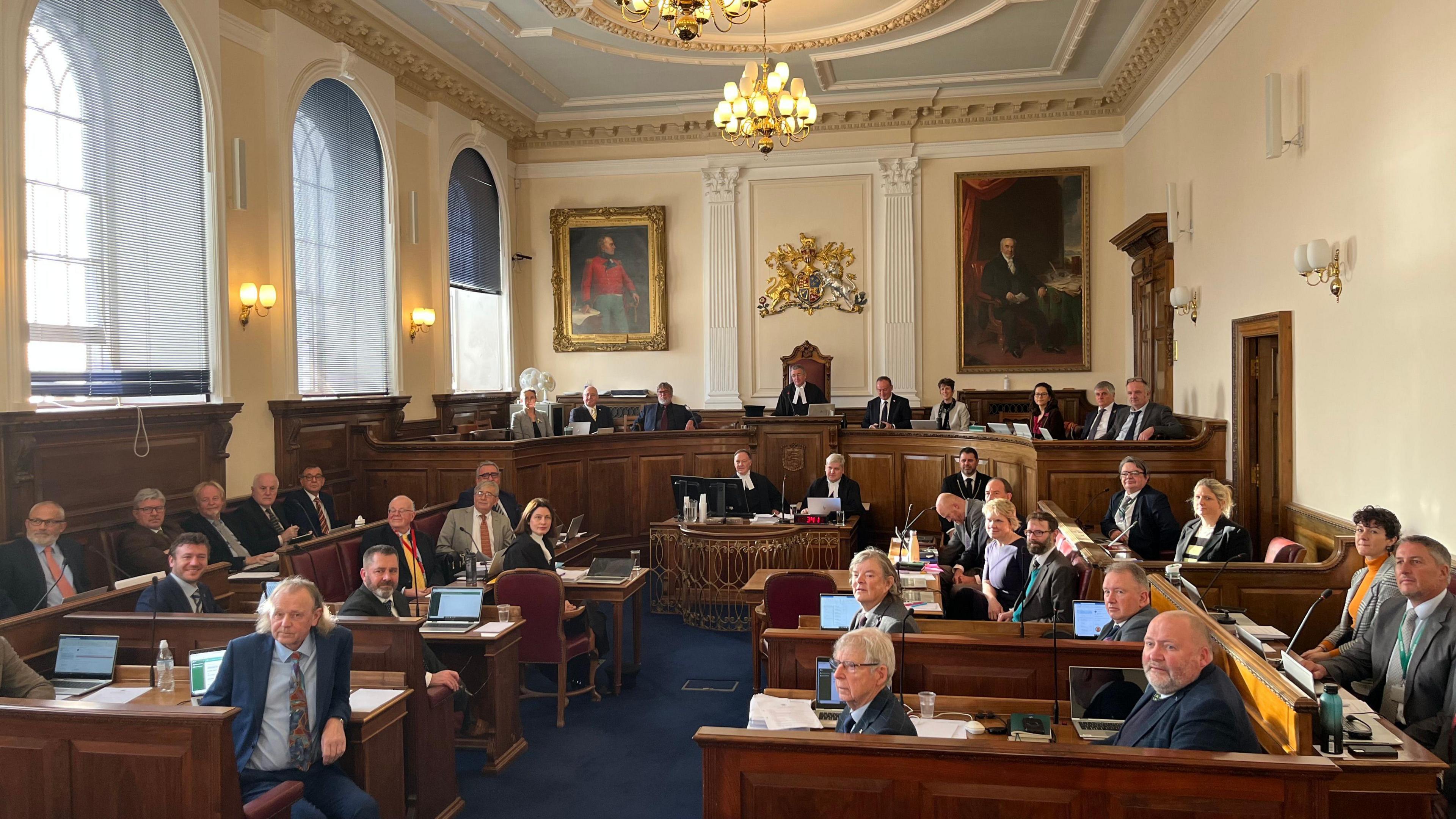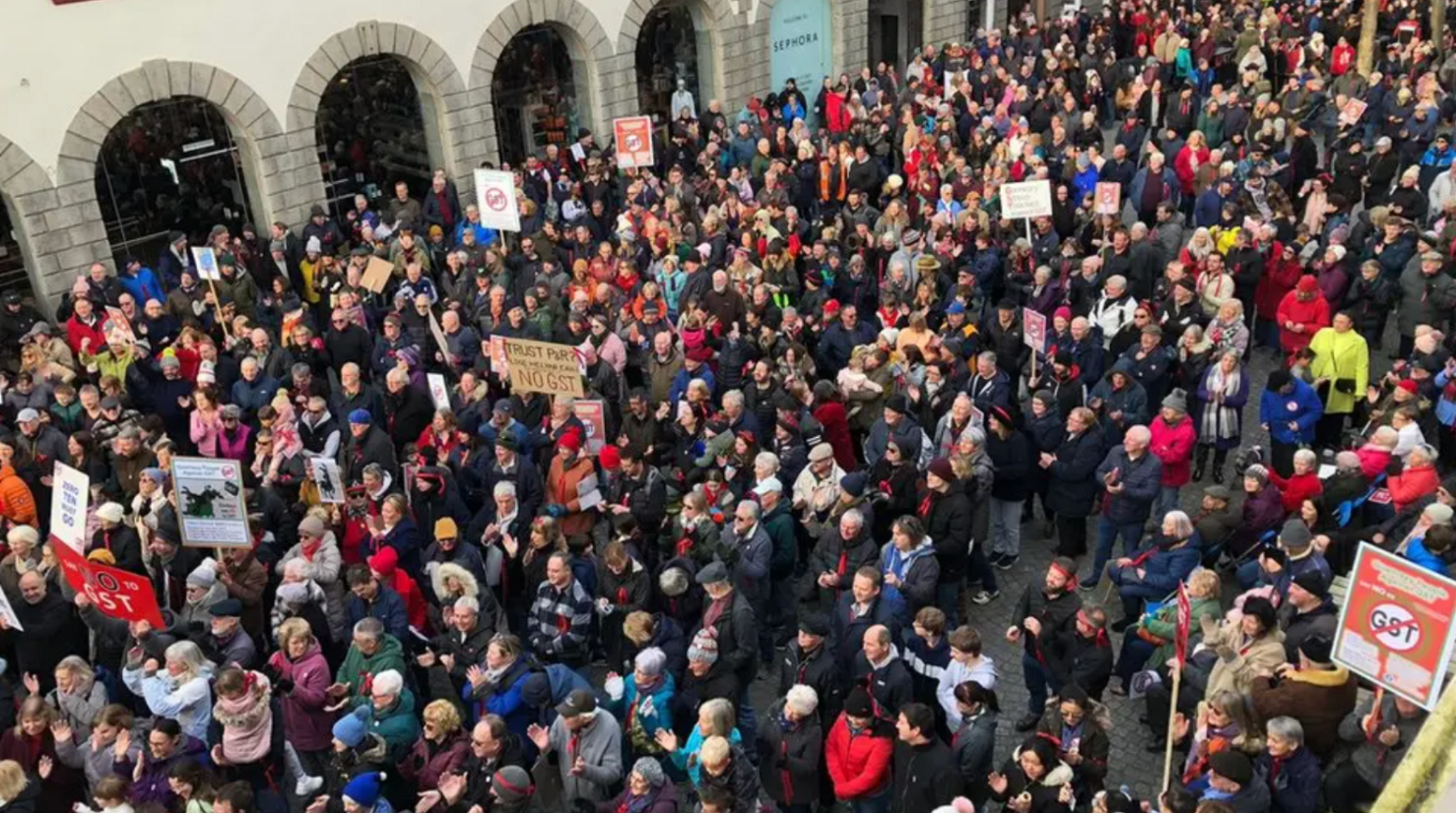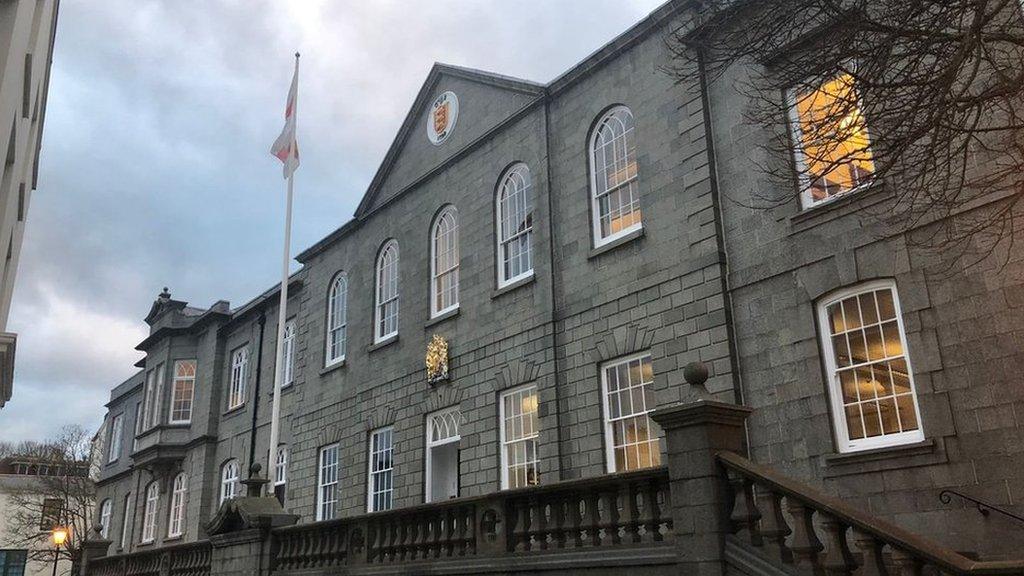GST could be set at 8%, warns P&R vice-president

Twenty deputies voted to support the GST package, with 15 voting against it
- Published
A politician has warned the planned introduction of a goods and services tax (GST) is likely to be set at 8% and not 5%.
Guernsey politicians rejected an immediate income tax rise on Thursday, in favour of plans for tax reforms including a 5% GST, lower income tax rates for earnings under £30,000 and social security reform, to start in 2027.
Policy & Resources Vice-President Heidi Soulsby said States' finances "are in a £100m worse position" than a year ago, which was "only going to get worse" and members voted to "not to do anything about it".
Proposals for a GST from 2027 are not expected to return for approval before the general election in June 2025, so will need to be approved by the next States Assembly.
'Deficit budget'
Soulsby said: "Because we are doing nothing about our deficit, it's very likely that, if GST is brought in next term, it's more likely to be at 8%.
"It's easy to make decisions that could happen in the next term, but we were looking at the here and now. We needed the cash and, at the end of the day, this is all about cash.
"The States have voted for a deficit budget and that means we will have to look at what's going to have to give.
"That could be the hospital, schools, runways, to name just three.
"We'll have to find that money the States has decided they don't want to provide."
'Prices will go up'
Channel Islands Co-Op CEO Mark Cox said there was an element of inevitability about Guernsey choosing GST.
"It makes some sense that Jersey has already done it from a competitive point of view, Guernsey shouldn't miss out.
"With any tax, I would imagine the vast majority of retailers would pass it on to the customer, we certainly wouldn't be able to absorb that GST.
"So prices will go up with whatever that percentage is, if it's 5%, prices will go up by 5%."
Mr Cox added: "The ideal for us would be to exclude food completely, as in Jersey we don't believe that taxing food is the right thing to do."
Stephen Rouxell, finance and accounting lead for Guernsey's Chamber of Commerce, said: "An income tax rise is problematic for our competitiveness, whereas a GST is a tax that is applied in almost all of the world.
"It also ensures that a number of people currently not within the tax frame living here in Guernsey would be brought into the tax frame."
'Absolutely bonkers'
In 2023, Guernsey's States twice rejected plans to introduce a GST.
Deputy Carl Meerveld led protests against GST at the time and said he doubted the decision would survive the election in 2025.
"Unfortunately, because a decision's been made to introduce it in 2027, it is likely to be a single issue election, which is democratically not a good thing," he said.
"The problem we've got is that we keep on introducing above inflation growing budgets.
"I'm one of the people who argues for a reconsideration of how the States functions and what we provide in terms of public services, so that we live within our means."
Deputy Peter Roffey, who led the plans to introduce a GST, said members made a "necessary decision to raise the money the island is going to need".
"The big question mark now is how we get through the next two years until we can start raising that cash," he said.
"The new States would be absolutely bonkers to undo this because they would have to come up with another way of filling that big deficit.
"I can tell them for nothing, there is no better or easier way to do it."
Follow BBC Guernsey on X, external and Facebook, external. Send your story ideas to channel.islands@bbc.co.uk, external.
Related topics
- Published8 November 2024

- Published5 November 2024

- Published15 October 2024

- Published17 February 2023
